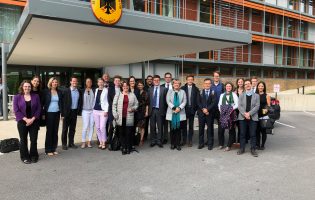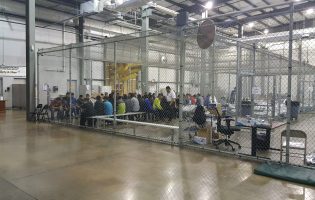
The Hijacking of the German Immigration Debate
When the Christian Democratic Union (CDU) and the Christian Social Union (CSU) had their ugly spat over migration in July, few would have expected it to result in a new …

The Chemnitz/Charlottesville Era and Readjusting What to Expect of Government
After the recent week of protests in Chemnitz, comparisons to the events of Charlottesville’s 2017 “Unite the Right” rally have abounded. And with good reason. Both events forced their respective …

Germany’s Charlottesville Moment
The protests and violence that took place last week in Chemnitz have brought home the depths of the western revolt against the liberal order which has been the norm in …

Europe Should Take Steve Bannon’s Threats Seriously
In an interview with the Daily Beast, Steve Bannon announced his plan for The Movement, a foundation to support right-wing populist parties in the upcoming European Parliament (EP) elections. Many …

The Berlin Wall: Limits and Legacies of Divisions
Fifty-seven years ago this week, the most tangible symbol of the Cold War started to emerge in the morning hours of August 13. As the East German government stretched barbed …
Recent Authors
AGI provides knowledge, insights, and networks as tools to solve the challenges ahead.
Support Our Work
Squaring the Gender Circle: Merkel, Men, and the CDU/CSU “Master Plan” Crisis
In November 2005, Angela Merkel became Germany’s first female chancellor, the youngest person to reach the nation’s top leadership post to date. Having lost his own bid for the chancellorship …

On Identity: Where Are You Really From?
The Centre for Turkey Studies and Integration Research (Stiftung Zentrum für Türkeistudien und Integrationsforschung) at the University of Duisburg-Essen conducts an annual multi-topic study involving citizens of Turkish descent who …

The Story of Bert Reiner, the Toy Maker, or: An Appreciation of the Individual Experiences of Former Shanghai Jewish Refugees
During the 1983 Christmas season, Coleco Industries, Inc. took the world by storm with a novel concept for a doll: Each doll was unique and would be adopted by a …







